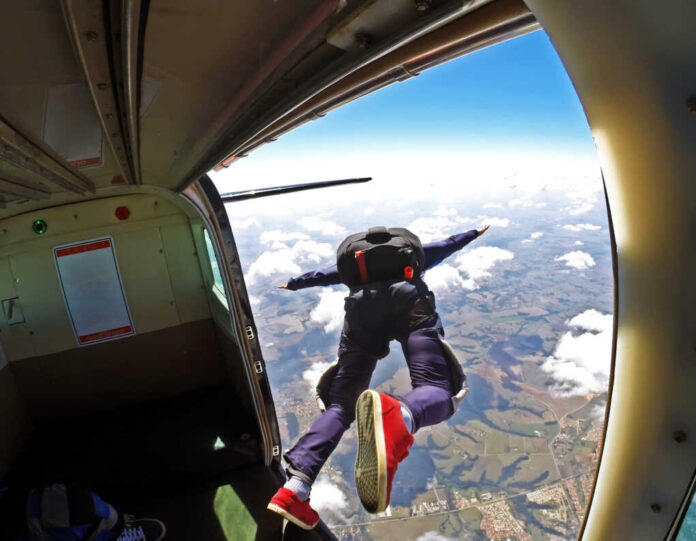
A skydiving incident challenges medical professionals’ responsibility in mental health evaluations for high-risk activities.
Story Highlights
- A young woman blames medical professionals for a skydiving accident that left her paralyzed.
- The case raises questions about mental health screenings in extreme sports.
- Emma Carey survived a fall from 14,000 feet and is pursuing legal action.
- She seeks accountability while protecting the identities of those involved.
- The incident may prompt changes in industry safety protocols.
Emma Carey’s Skydiving Tragedy
In 2013, Emma Carey experienced a catastrophic accident during her first skydiving jump, resulting in severe injuries and paralysis. The incident, which took place during a recreational jump, has led to allegations against medical professionals for insufficient mental health screening prior to the activity. Carey, who was reportedly dealing with depression, argues that this oversight contributed to her decision to participate in the high-risk sport.
The accident has prompted Carey to pursue a £15 million compensation claim against Skydive Buzz Ltd and the medical professionals involved. Her legal action highlights the need for more stringent mental health evaluations in extreme sports, raising questions about the duty of care owed by both medical professionals and skydiving organizers. Despite the potential for legal action, Carey has chosen to protect the identities of those involved, emphasizing forgiveness over blame.
Depressed student sues skydive firm for £15million after breaking her neck in parachute jump saying they should not have passed her fit https://t.co/pNhSE0Arq7
— Daily Mail (@DailyMail) November 5, 2025
The Role of Medical Screenings in Extreme Sports
The skydiving industry has faced scrutiny over safety protocols, especially concerning the adequacy of medical screenings prior to participation. Carey’s case underscores the importance of assessing psychological conditions that could impair judgment in high-stakes activities. The legal precedent set by previous cases, such as the Turner family’s lawsuit against a Lodi skydiving facility, demonstrates the potential liability for operators failing to ensure participant safety.
Emma Carey’s deliberate decision to protect the identities of those involved reflects a complex emotional stance. She has expressed a desire to focus on her recovery and personal healing, rather than seeking punitive measures against the individuals connected to her accident. This approach aligns with her belief in accountability balanced with compassion, a viewpoint that has garnered attention and respect.
Watch: I Shouldn’t Be Alive | Emma Carey Survived Skydiving Accident
Implications for the Skydiving Industry
The ongoing legal proceedings and Carey’s remarkable recovery journey have significant implications for the skydiving industry. There may be increased calls for regulatory reviews of pre-jump medical screenings, particularly regarding mental health evaluations. This case could influence industry standards for participant clearance, striving to enhance safety and prevent similar incidents. The broader discussion about balancing participant autonomy with operator responsibility continues to evolve as this case unfolds.
Emma Carey’s story not only highlights the resilience of the human spirit but also serves as a catalyst for potential change within the extreme sports community. As her legal battle progresses, the skydiving industry and medical professionals alike may need to reevaluate their practices to better protect participants and uphold safety standards.
Sources:
The Skydiver Who Survived a 14,000-Foot Fall
Vegas Skydiving Incident Raises Questions on Safety


















